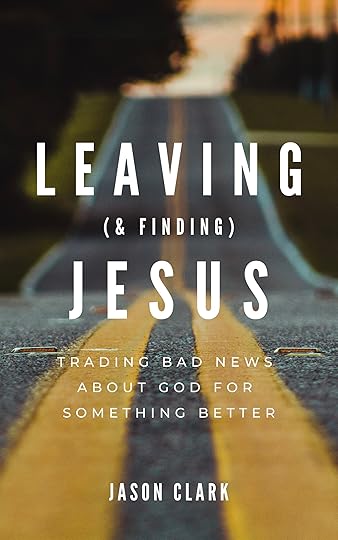Can You Be Saved After You Die?
Times Two Daddy
Can you be saved after you die?
Many years ago…
It was bedtime and I was snuggling Eva. I told a story about a bunny princess named Gertrude who only wore plaid and a squirrel prince named Hank who only wore pajamas.
I paused for the expected interruption and then listened, smiling to tears, as Eva made her revisions. Gertrude became Lizzy with a beautiful pink dress. Hank became Lizzy’s best friend Molly. She too had a beautiful dress, hers was purple, and they also had ponies.
And as Eva imagined out loud, I thanked my Father for the wonder of this girl. At that moment, I knew love like I never had before.
We transitioned from storytime into our goodnight communion.
“Eva, you’re my favorite. I love you best,” I said. It’s a family phrase, a motto. I say this to all my kids. And it’s true, every time.
“I love you best too daddy,” she responded and the game had begun.
“I love you to the tops of the trees and back.” I smiled.
“I love you to the tops of the trees, the moon, the stars, to Jupiter and back.” She knows how to play the game.
I went big, “I love you to the top of the trees, the moon, the stars, Jupiter, the universe, and to infinity and beyond.”
We continued for a few more minutes each taking turns surpassing the last statement, a million, billion, gazillion, a googleplex, to infinity and beyond.
I had just exhausted my imagination with a litany of love when she looked at me cleverly; I could see the wheels spinning in her little mind.
Then she said, all clever like, “Times two, daddy.”
Times two, daddy. It flips everything on its head.
A five-year-old applies the smallest multiplier she comprehends and it blows up the foundations of all measurement-based thinking, including all the measuring that goes on within the Christian faith.
We have all played this game in some form or another. And we love this game because it reveals something profoundly beautiful and true.
You see, this is a game of measurements with a measureless revelation.
Measureless & Timeles s
“Can you be saved after you die?” I think that’s a question asked from a finite perspective on the nature of love…
“And I pray that you, being rooted and established in love, may have power, together with all the Lord’s holy people, to grasp how wide and long and high and deep is the love of Christ, and to know this love that surpasses knowledge—filled to the measure of all the fullness of God. Eph 3:16-19
Paul, using the language of earth, plays the game I played with my five-year-old describing God’s love as wider than forever, longer than eternity, higher than a million, billion, gazillion, and deeper than infinity and beyond. And then he encourages us to try and take Loves measure; to be “filled” to “the fullness.”
After Paul has exhausted his imagination with a litany of love, he smiles cleverly. At least, that’s how I imagine it. Then, with all the guilelessness wonder of a five-year-old, he says, “times two, daddy.”
Or,
“Now to him who is able to do immeasurably more than all we ask or imagine, according to his power that is at work within us, to him be glory in the church and in Christ Jesus throughout all generations, forever and ever! Amen.” Eph 3:20-21
The nature of God is love (See 1 John 4: 7-8).
Love is an infinite revelation (See Eph 3:16-21).
Love was before time existed (See John 17:5 & 24)
“Before time existed?” That statement stretches the imagination of most time travelers like us. What does it even mean?
The nature of love is that it’s beyond our capacity to comprehend. The moment we think we have its measure, a five-year-old blows up our understanding with, “times two, daddy.”
Love Is,
reconciling,
self-giving,
beyond time and space,
beyond and our ability to count or measure;
we can’t get our heads around it,
nor do we have enough words to describe it.
But wonderfully, we try, and along the way, we awaken to, discover, and rediscover its measureless ways.
And we know this love is true. We know beyond understanding that the measureless nature of Love is truer than anything else that’s ever been true; truer than life or death, powers or principalities, fears or worries, the present or future, not even the powers of hell can separate us from this measureless love… (See Rom 8:38)
Penal Substitutionary Atonement
“Can you be saved after you die?” The question I’d ask in response is, “Is God’s reconciling love limited to the constraints of time?”
God is love. He was before and will be after. His love is an ever-expanding revelation. Every measurement we attempt to apply to LOVES nature can be undone and exposed as infinitesimal with a five-year-old’s multiplier of two.
As Christians, we’re aware of the indwelling measureless nature of love, know it to be true beyond our capacity to understand, know it’s our salvation. But like Adam and Eve, deceived by the illusion of control, we often demand that God’s love fit into the box of our finite understanding.
This is where a proper academic theologian would write about atonement theories and specifically, penal substitutionary atonement. But I’m not a proper academic theologian, I’m just the dad of that five-year-old. I’m just a guy pushing against the lie of separation that torments most humans today; a good many of them professing Christians.
My thoughts on penal substitutionary attornment? It’s a fallen, self-righteous infatuation with the delusion that humanity is separated from God, and makes a religion out of measuring the distance between us.
It suggests that MEASURELESS LOVE determined humanity outside the parameters of His measureless love. As if Love could stop being wider than forever, longer than eternity, higher than a million, billion, gazillion, and deeper than infinity and beyond. As if an infinite God must submit to our finite equations regarding salvation, as though His love for us can be measured and then paid for in blood.
Penal substitutionary atonement practices in separation and retribution while promising some vague future reward that’s impossible to partake of today. It’s so belittling to the nature of God’s love as to be laughed at, but sadly this atonement theory has worked its way into Western Christian thought.
Sadly, Christians have had to navigate this measurement-based thinking while clinging to scraps of experiences with measureless love like a sailor clings to the wreckage of a ship lost at sea.
We know, in our hearts, that only a love that is measurelessly good, a gift freely received and freely given, can save us. But we keep drowning in the ocean of the church’s religious infatuation with making people pay.
And hell is how we ultimately pay, now or later.
And as to later, the clock is ticking.
The Clock Is Ticking…
“Can you be saved after you die?” Well, if God’s wrath is eternal but His mercy and forgiveness is finite, then I suppose not…
The ticking clock is one of the most used tropes in Hollywood. There’s a bomb and clock attached to it, and it’s counting down, and there’s a red wire and a blue wire. And if the hero cuts the wrong wire, its smithereens for him, or her. And if it’s a good movie, it’s smithereens for the whole world.
It’s called the race against time. Without time, we have nothing to measure the potential destruction against. If the clock isn’t ticking, the bomb can’t go off and there’s no reason to watch that movie.
For those who practice in retributive thinking, where God is punitive and hell is his ultimate eternal punishment, time is actually their god as well. Even measureless reconciling love must submit to it.
In measurement-based systems, God’s forgiveness and grace and kindness, and reconciling love are ultimately limited aspects of His nature, while we redefine wrath and condemnation as God’s eternal and defining attribute. Every measurement-based system essentially preaches that what Adam did in the fall has eternal ramifications, but what Jesus did at the cross is limited and constrained to the ticking of a clock, as though God’s forgiveness, mercy, grace, redemption, reconciliation, and restoration must submit to when the clock strikes zero.
You dismantle the bomb before time runs out or time gets its revenge, sadly, his is the measurement game so many Christians are taught to play.
But Jesus dismantled the bomb and the entire measurement-based system, He stepped inside that delusion and set us free to play the game I played with my five-year-old; a game where the “times two daddy” reveals an ever-expanding, never-ending revelation of the perfection that is the nature of God and His heart toward us.
The idea that Christ died as a payment for anything is a fallen finite way of thinking, a delusion, what seems right in the finality of time; and Jesus stepped inside that measurement-based delusion at the cross and blew it up from the inside out – get it.
Every measurement-based paradigm is a counterfeit of who God is. He set us free from measuring distance and separation. He revealed we are one.
And yet we Christians practice in this finite way of thinking every day with the finality of hell being the ultimate arrogant, controlling, and manipulative condescension.
We’ve determined humanity’s salvation is not discovered in the mystery of the measureless reconciling nature of God’s love but instead based it on our ability to count, to measure.
The retributive lens on God makes Justice about our capacity to comprehend addition; it makes grace nothing more than a balancing act and puts limits on mercy, forgiveness, and kindness.
Everything is about limits in a measurement-based system, which some people refer to as The Law…
Like the Rich Young Ruler who, after confirming he’d done all the law required, asked Jesus, “What else am I lacking?”
“What else am I lacking” is the beginning and the end of a measurement-based perspective of God.
When measurements are our lens through which we perceive the cross, our God isn’t Love, or loving, our God is Time, and salvation is determined by the ticking clock and whether we say the right prayer, or measure up, before our time runs out.
So,
“Can you be saved after you die?”
I don’t know.
And also,
I know beyond understanding, “…that nothing can ever separate us from God’s love. Neither death nor life, neither angels nor demons, neither our fears for today nor our worries about tomorrow
— not even the powers of hell can separate us from God’s love.
No power in the sky above or in the earth below—indeed, nothing in all creation will ever be able to separate us from the love of God that is revealed in Christ Jesus our Lord…” Rom 8:38-39
Excerpted from my forthcoming book, Leaving (& Finding) Jesus
CLICK HERE to Pre-Order Now


Jason Clark is a bestselling storyteller who writes to reveal the transforming kindness of the love of God in a world traumatized by the religious abuses done in the name of the love of God. He and his wife, Karen, live in North Carolina with their three children, Madeleine, Ethan, and Eva.
FollowFollowFollowFollowFollowFollowFollowFollow JOIN OUR MAILING LIST GIVE TO A FAMILY STORY YOU ALSO MIGHT LIKE… Hell, and Freedomby Jason Clark | February 4, 2021 | Articles, Faith, God Is Not In Control, Popular | 2 Comments
Look, if a future punishment is the only thing keeping a person from hurting others, by all means, that person might need to keep believing in hell. But let’s not pretend that person is whole or free. And whatever we do, let’s not give that kind of thinking a pulpit in our lives.
Read More I Amby Jason Clark | March 24, 2009 | Articles, Crisis of Identity, Faith | 0 Comments
He is “I Am,” which means, He is the God of right now. Yesterday He was God, and tomorrow He is God, and it’s good to know this, but today I really want to know Him as “I Am,” the God of right now.
Read More Seedby Lloyd Clark | September 25, 2019 | Articles, Faith, Lloyd's Corner, Relationship, The Fathers Love | 0 Comments
Take your desires and plant them in your heart, meditate on them. You don’t have to know how it works, you just need to know that it super-naturally produces like a seed.
Read More Does God Use Tragedy To Manipulateby Jason Clark | February 9, 2019 | Articles, Faith, God Is Not In Control | 3 Comments
God never instigates nor manipulates a tragedy to grow faith, that’s not what a good Father does. But it is what a controlling God would do.
Read More Well Done, Tireby Jason Clark | September 21, 2011 | Articles, Books, Crisis of Identity, Faith, Leadership, Prone To Love, Short Story, The Fathers Love | 4 Comments
We are designed to live a life of risk and trust, to do valiant acts of faith, to live out our radical acts of surrender, to leave it “all out on the field,” all for the glory of our King, so that when we get to heaven we will experience in those 3 beautiful seconds, those 6 stunning words. We are all living for the, “Well done.”
Read More Leaving Jesusby Jason Clark | July 15, 2020 | Articles, Crisis of Identity, Dreaming, Faith, God Is Not In Control, Intimacy, Popular, Sin, The Fathers Love, Worship | 2 Comments
“The Jesus that reigns down pain and disappointment to teach you something about his love, the behavior obsessed Jesus who uses shame to manipulate you into doing what he wants, the abusive Jesus you have been describing to me for more than an hour, I think you should leave him.
Read MoreThe post Can You Be Saved After You Die? appeared first on A Family Story.



